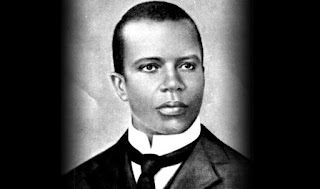Scott Joplin the King of Ragtime
Scott Joplin often hailed as the "King of Ragtime," made an indelible mark on American music with his pioneering compositions. Born on November 24, 1868, in Northeast Texas, he grew up in a musical family, which was vital in nurturing his early musical talents. His father, a former slave, and his mother, a freeborn woman, both appreciated music, providing a rich environment for Joplin's musical development.
Joplin's musical talent was discovered in his childhood. He showed a natural aptitude for music and learned to play the piano, largely self-taught with some instruction from local teachers. His family's move to Texarkana, where he had access to a piano, honed his skills. Joplin's early exposure to various musical styles, including folk and church music, significantly influenced his later compositions.
Joplin traveled as a musician as he grew older, playing in various places and absorbing different musical styles. His work initially received little attention, but his fortunes changed with the publication of "Maple Leaf Rag" in 1899. This piece became a massive hit and is often considered the archetypal ragtime composition. Following this success, Joplin's music started to gain widespread recognition, although he still faced challenges due to the racial prejudices of the time.
Joplin's most famous works include "The Entertainer," "Peacherine Rag," and the opera "Treemonisha." "The Entertainer," in particular, gained renewed popularity in the 1970s after being featured in the movie "The Sting." These works are notable for their complex rhythms and syncopations, characteristics that defined the ragtime genre.
Joplin's impact on American music is profound. He elevated ragtime from its humble origins in African-American communities to a significant and respected art form in American music. His compositions bridged the gap between classical and popular music, influencing the development of jazz and other musical styles. Joplin's focus on operatic and longer-form compositions also indicated his ambition to push the boundaries of what was considered popular music of his time.
Globally, Joplin's influence extends to various music genres. Ragtime's rhythmic complexity and blending of different musical traditions can be seen in modern jazz, pop, and classical music compositions. Joplin's insistence on recognizing African-American music as an essential part of American culture paved the way for future generations of musicians of all backgrounds. His legacy inspires musicians and composers worldwide, a testament to his enduring influence on the global music scene.



Comments
Post a Comment